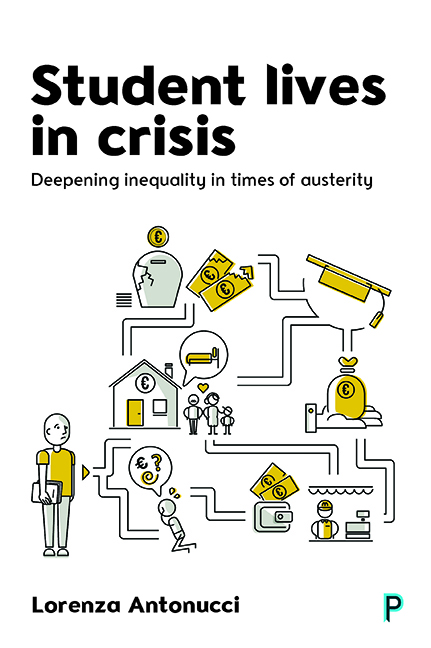Book contents
- Frontmatter
- Dedication
- Contents
- List of tables and figures
- List of acronyms
- Note on author
- Preface: A post-Brexit preface
- Acknowledgements
- Introduction: Young people’s lives at university in crisis
- Part 1 University for all? How higher education shapes inequality among young people
- Part 2 Exploring the inequality of university lives in England, Italy and Sweden
- Part 3 The ‘eternal transition’: young adults and semi-dependence in university
- Conclusion: Addressing growing inequality among young people in university
- Notes
- Annex
- Index
Part 2 - Exploring the inequality of university lives in England, Italy and Sweden
Published online by Cambridge University Press: 05 April 2022
- Frontmatter
- Dedication
- Contents
- List of tables and figures
- List of acronyms
- Note on author
- Preface: A post-Brexit preface
- Acknowledgements
- Introduction: Young people’s lives at university in crisis
- Part 1 University for all? How higher education shapes inequality among young people
- Part 2 Exploring the inequality of university lives in England, Italy and Sweden
- Part 3 The ‘eternal transition’: young adults and semi-dependence in university
- Conclusion: Addressing growing inequality among young people in university
- Notes
- Annex
- Index
Summary
Part 1 showed that despite more young people gaining access to university, inequality among this generation has actually increased, as structural differences persist. In particular, the welfare sources available to young people vary both across countries and also depending on the young people's own socioeconomic background. Previous studies and statistical analyses show that the university experience can actually exacerbate, rather than decrease, inequalities among young people by encouraging an over-reliance on family sources, and by forcing more young people from lower classes to work while studying. Mass HE, often depicted as a way to democratise HE by allowing the lower classes to join a path that was previously difficult to access, becomes instead a way of reproducing inequalities among young people. Inequality is not just transmitted culturally from families to young people – during university the material sources of inequality among young people are reinforced, not only due to the costs of attending HE, but also because young people have to find the resources to cope with their protracted semi-dependent state.
In order to show how young people's lives at university have been affected by the privatisation of HE costs described in Part 1, Part 2 presents the findings of the cross-national research conducted across the three countries, which involved 84 young people from different socioeconomic backgrounds. I used Q-methodology, a psychosocial method, in order to group students into different profiles through factor analysis. This is shown visually through the use of crib sheets, identifying the most relevant ranking of the statements for each of the five profiles compared to the other profiles. The results of the Q-sort, combined with qualitative material, show what the inequality of young people's experiences in university means in practice.
The research is introduced in Chapter 4, with a discussion of the young people's semi-dependent position during university life. In Chapter 5 the different ‘profiles’ identified are presented, showing the statements on which the different profiles agreed and disagreed, and how the five different profiles have a different university experience in the four areas identified earlier in Part 1: financial position, housing, wellbeing and education. In Chapter 6 the diversity across the different profiles is explained by discussing the function of socioeconomic background and the use of welfare sources (role of the family, state support and participation in the labour market during university).
- Type
- Chapter
- Information
- Student Lives in CrisisDeepening Inequality in Times of Austerity, pp. 65 - 66Publisher: Bristol University PressPrint publication year: 2016



